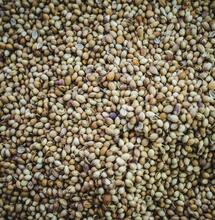Bayer to fight $265m fine over herbicide

By Rich Hamilton German chemical giant Bayer has been ordered by a Missouri court to pay $265m (£203m) to a US peach grower who blamed a herbicide for crop damage.
The firms problems continue….
Farmer Bill Bader sued Bayer, alleging that dicamba weedkiller drifted onto his orchard from nearby fields, destroying them. It is the first ruling in some 140 US cases against dicamba, a herbicide that has been historically blamed for extensive crop damage. Dicamba is thought to be the culprit in more than 3 million acres of damaged soybeans across the country, destroying plants and leaving farmers out millions of dollars in crops. Dicamba is nothing new though and has been in use for decades now, so why is it only now causing farms so much damage? One of the reasons is thought to be because Farmers Are Spraying more of it. In recent years, many farmers used glyphosate, which is the active ingredient in another controversial Bayer owned weed killer, Roundup, used to destroy weeds such as palmer amaranth, or pigweed. Eventually however, many pigweed plants grew resistant to formulations of glyphosate. So Monsanto developed soybean seeds that were genetically modified to withstand new formulations of an older pesticide called dicamba. Dicamba has long been criticised as being too likely to drift in the wind onto neighbouring farmland, and onto plants not genetically engineered to withstand the chemicals. The sheer amount of dicamba sprayed over the past few years however has magnified the problem. Another reason why problems may be on the increase is because Farmers Are Using Dicamba Later In The Year. Historically Dicamba was sprayed in April and May around corn and other crops. Many farmers are now spraying the new formulations of dicamba as late as June and July and opening up plants to exposure when they are more mature, which only increases the damage that can be done. In response, the U.S. Environmental Protection Agency reviewed the restrictions it placed on the use of dicamba and Missouri and Arkansas also temporarily banned dicamba sales. Regulators in Missouri also tried putting together new instructions on how to properly prepare and apply the chemical. Regardless of all this however, reports of damaged crops have continued to be reported. With there being in the region of 2,200 official dicamba-related investigations open in the U.S. in recent years. Bayer owned Monsanto retaliated in an open letter to farmers that says, “The overwhelming majority of farmers are experiencing tremendous success” with dicamba. They also stated that after studying the reports of damage, that education and training on the application process, is the way to improve accurate and safe use of dicamba. Bayer maintain that its herbicides pose no unreasonable risk if used correctly. US ”agrochem” giant Monsanto who were bought by Bayer for $63bn back in 2018, also sell the much-criticised product, Roundup which has attracted just as much negative press and legal disputes in recent years due to concerns that it may in fact be responsible for numerous cancer diagnosis’s in regular, long term Round Up users. Most notably, in 2018, when in the first case of its kind, Monsanto were ordered by a Californian court to pay $289 million to Dewayne Johnson, a school groundskeeper who had used Roundup and other glyphosate based weed killers up to 30 times a year for many years and alleged that it was responsible for his terminal, non-hodgkin’s lymphoma cancer. This has opened the floodgates with Bayer currently facing in the region of 5000+ similar lawsuits across the US which may cost them billions of dollars in damages. In regards to the dicamba case, Bayer said it would "use all available legal resources" to fight the federal district court’s ruling. The firm were ordered to pay Mr Bader $15m in actual damages and $250m in fines as he argued that his 1,000-acre orchard was destroyed by dicamba. Bayer responded by stating "We will swiftly appeal the decision. While we have great empathy for any farmer who suffers from crop losses, in the case of Mr Bader there was no competent evidence presented which showed that Monsanto's products were present on his farm and were responsible for his losses.” In the face of adversity Bayer continue to insist that Monsanto herbicides are safe and "valuable tools for growers” and that The herbicides "do not pose any unreasonable risk of off-target movement when used according to label directions”. Somehow, however with the number of lawsuits wishing to prove otherwise constantly on the rise, I don’t see how this argument can stand up for much longer!



